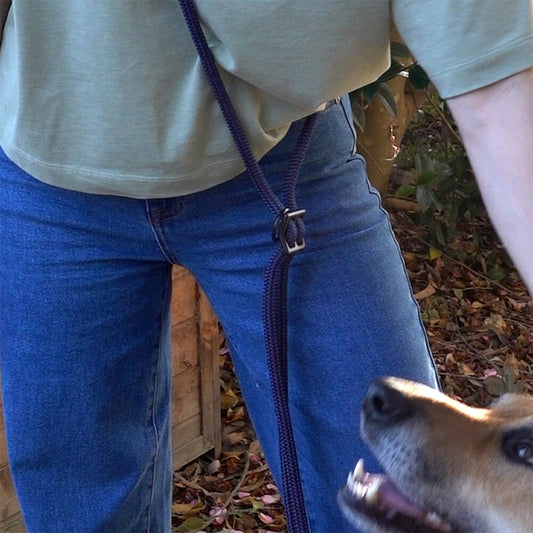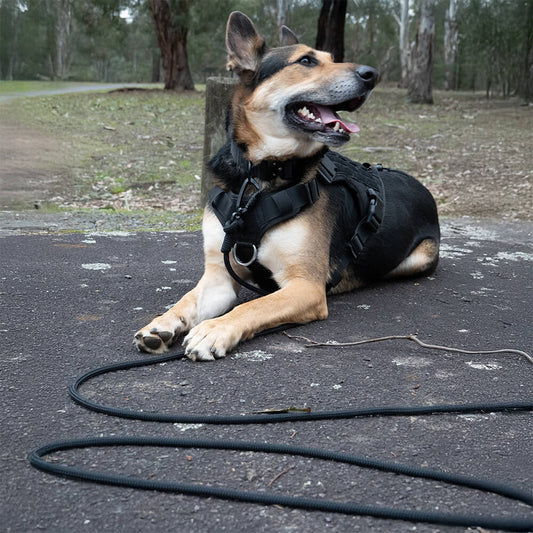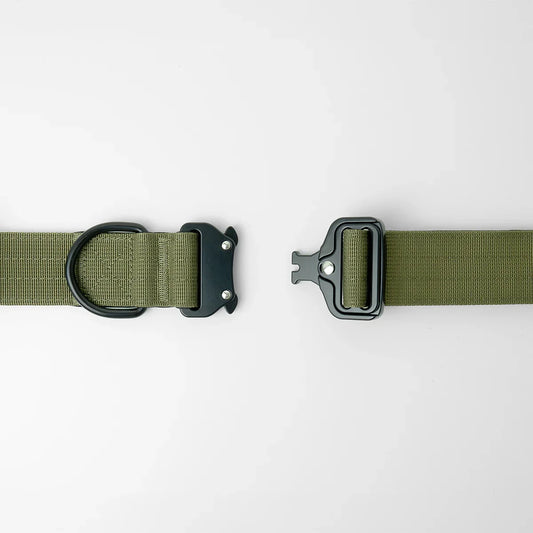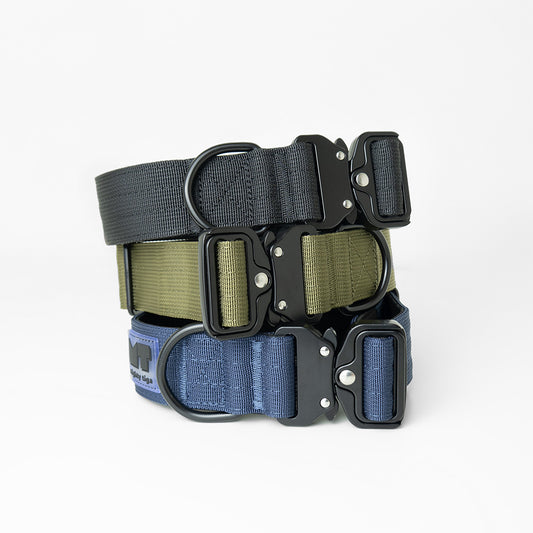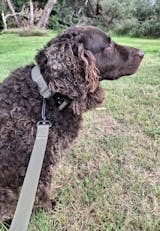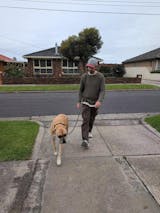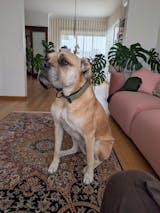
How to Choose the Right Dog Trainer in Australia (2025 Guide)
Choosing the right dog trainer is one of the most important decisions you can make as a dog parent. Whether you're dealing with pulling, reactivity, or general obedience training, working with a skilled and ethical trainer ensures long-lasting, positive results.
But how do you know if a trainer is truly qualified?
Here’s a complete guide on what to look for when choosing a dog trainer in Australia—with tips to help you find a professional who matches your values and your dog’s needs.
1. Look for Certified Dog Trainers in Australia
In Australia, the dog training industry is unregulated, meaning anyone can call themselves a trainer. To find a credible expert, look for trainers with recognized certifications, such as:
✔ Certificate III in Dog Behaviour and Training (NDTF) – National Dog Trainers Federation’s industry-recognized course.
✔ Certificate IV in Companion Animal Services – Provided by Delta Institute, The Anumal Academy or TAFE, focusing on ethical training methods.
✔ IMDT Membership (Institute of Modern Dog Trainers) – Trainers who pass IMDT assessments follow science-based, force-free techniques.
These credentials indicate the trainer has formal education in canine behaviour and training techniques.
2. Look for Positive Reinforcement Methods
A credible dog trainer should use humane, science-backed training methods based on positive reinforcement. Avoid trainers who rely on outdated dominance-based techniques, such as:
❌ Harsh leash corrections
❌ "Alpha dog" or pack leadership theories
❌ Intimidation-based methods
Instead, seek trainers who focus on rewards, shaping behaviour through encouragement, and helping dogs feel safe and confident. Before committing to a trainer, check their website or social media for information on their training philosophy. If it's not clearly stated, don’t hesitate to call and ask. Understanding their approach ensures it aligns with your goals and values. If you're unfamiliar with the philosophy they mention, take the time to research it before scheduling a session—being informed will help you make the best choice for your dog.
3. Ask About Their Experience & Specialization
Not all trainers are suited for every dog. Some specialize in:
🐾 Puppy socialization and obedience
🐾 Behavioural modification (reactivity, fear, aggression)
🐾 Assistance and therapy dog training
🐾 High-energy or working breeds
If your dog has specific needs, find a trainer with experience in that area.
4. Read Reviews & Ask for References
A reputable trainer should have positive testimonials from past clients. Check:
⭐ Google Reviews
⭐ Facebook Recommendations
⭐ Their website or Instagram page
⭐ Dog training forums (or Reddit)
You can also ask the trainer for references from previous clients.
5. Ask for Recommendations from Trusted Sources
One of the best ways to find a credible trainer is through word-of-mouth recommendations. Ask your:
👨⚕️ Veterinarian – Vets often work with trusted trainers and can refer you to someone reputable.
👨👩👧👦 Friends & Family – Personal experiences from those you trust can give insight into a trainer’s effectiveness.
🏢 Colleagues & Local Pet Communities – Dog parks, pet supply stores, and training groups often have great recommendations.
Getting recommendations from trusted sources ensures you're choosing a trainer with proven results and a solid reputation.
6. Watch a Training Session First
Many trainers offer free consultations or allow you to observe a session. This gives you insight into their approach and how they interact with dogs.
Red flags include:
⚠ A trainer who punishes dogs excessively or ignores signs of stress.
⚠ Someone who refuses to explain their methods.
⚠ A lack of patience or rushing the process.
7. Ensure They Offer Ongoing Support
Training isn’t a one-off fix—it’s an ongoing journey. Look for trainers who offer:
- Follow-up sessions 📆
- Online resources 🧑💻
- Group classes or workshops 🐕
- Text or email support between sessions 📲
This ongoing guidance helps solidify your dog’s progress and keeps you supported, too.
Final Thoughts: Why a Good Trainer Matters
A harness, leash, or collar alone won’t solve pulling or unwanted behaviours—proper training is key. Investing in a skilled dog trainer sets your pup up for a lifetime of good behaviour, making walks and daily interactions more enjoyable for both of you.
Need a reliable dog leash or dog collar to complement your training? Explore our range of high-quality dog gear designed for training success!






